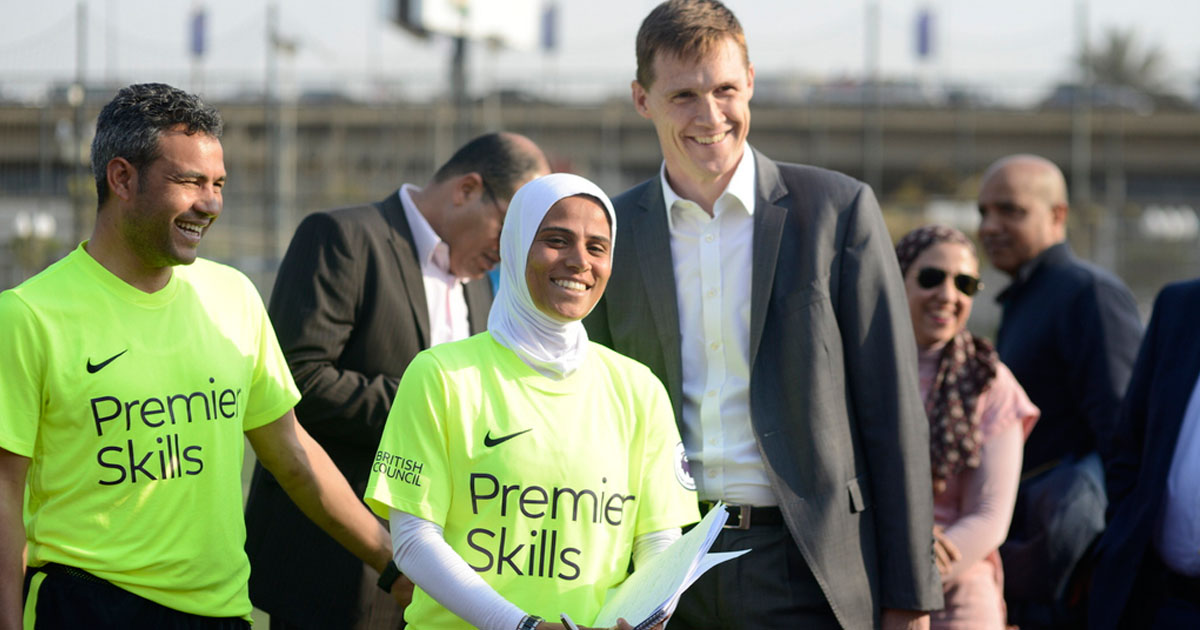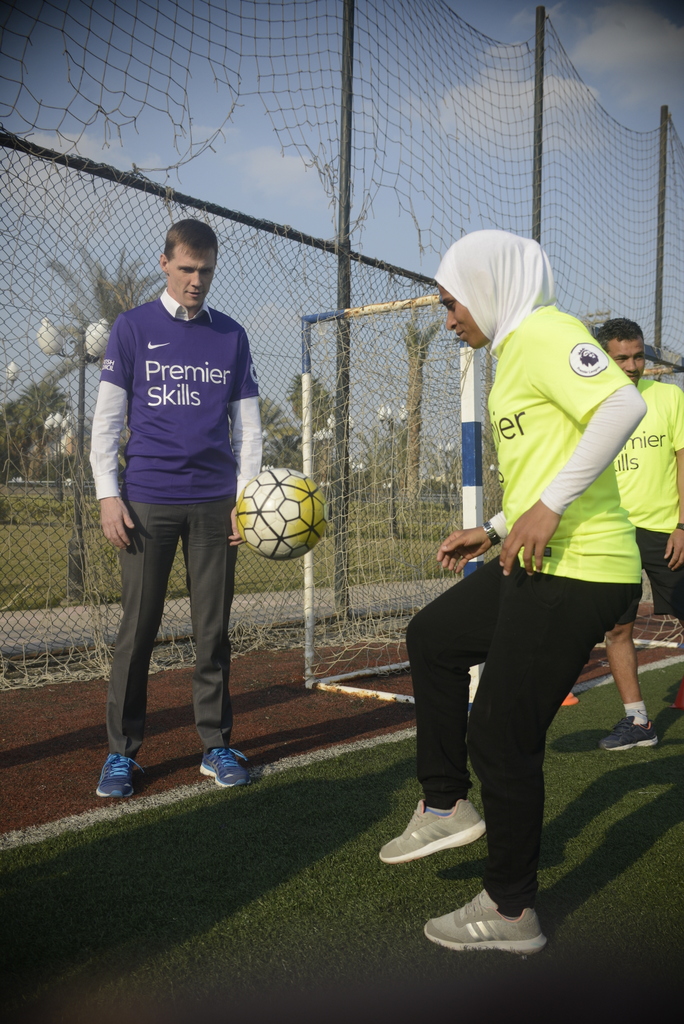Some of us may know Faiza Haidar as the captain of the female national football team,recently honored by the Egyptian president, but few know the impact her work has had on our communities or how she got to where she is today.
In a distant youth center in Helwan, Faiza Haidar used to take her little brother to football practice and wait for him in a corner, kicking a ball, when a coach took notice of her promising talent and told her not to give up football. But this was a time when only 100 women were registered in the Egyptian Football Federation.
Tired of living within the constraints of cultural norms, she started playing in 1997 at the Helwan Club, only to become, a year later,a member of the Egyptian female national team.
“The turning point for me was the Premier Skills program. Its core intention is to help coaches develop their community through sports, improve their employment chances, and it has children and social integration at the heart of it all.”
Delivered through the British Council by coaches from the English Premier League,who have been coming to Egypt since 2007, the program teaches coaching skills that make practice fun, but also works on developing the social, cognitive and interpersonal skills of young footballers. It educates participants on how to bring an idea for community development to life, through football,in a way that is sustainable and impactful.
“Football was always a game for men in Egypt. In fact, male coaches never believed women could play, let alone coach”
Teachers and learners of English are given free, compelling learning materials, drawing on football-based content from the most exciting football league in the world. “I learned how to put a community club together, raise funding and organize a tournament” said Faiza. She then moved ahead with her project and put together a team of 100 girls from her neighborhood. Almost 60% of them now play in well-known Egyptian football clubs.
Children joining the community academies are less likely to drop out of school, show remarkable improvement in their grades and develop a strong sense of belonging to their team and neighborhood. In her first project, Haidar integrated children from different social classes and taught them to empathize with one another.
“Faiza put together a team of 100 girls from her neighborhood, Almost 60% of them now play in well-known Egyptian football clubs”
Drawing on the program’s teachings of inclusion, Faiza put together the first integrated team made of disabled and non-disabled players, and, in December 2017, won the first Special Olympics Female Unified Football cup in the region, and qualified for the world cup that will be held in Chicago in July 2018. Around 1.4 million people worldwide are currently engaged in the program.
“Football was always a game for men in Egypt. In fact, male coaches never believed women could play, let alone coach” she reminded. If football was a game monopolized by men, today, and for the first time, women are being hired to coach men’s football teams. In Faiza’s community centers, teenage boys and girls play in integrated teams. Harassment is replaced with respect and stereotypes are melting away, pitch by pitch.
The program reached all 27 governorates,resulting in a widening base of female footballers, which helped Egypt move on to reach 5th place in the African cup in 2016, for the first time in 18 years. Over 11 years, it provided training to 600 trainers and referees, and helped establish 200 football-based community projects and youth centers, touching the lives of 300,000 young people.
Future participants can join through the British Council, who delivers the program to Egypt and 29 other countries, as part of their cultural and child development strategy.



It’s really wonderful , I wish I could be like her one day , I love football so much and I hope that I could be a football player in Zamalek team in the future..